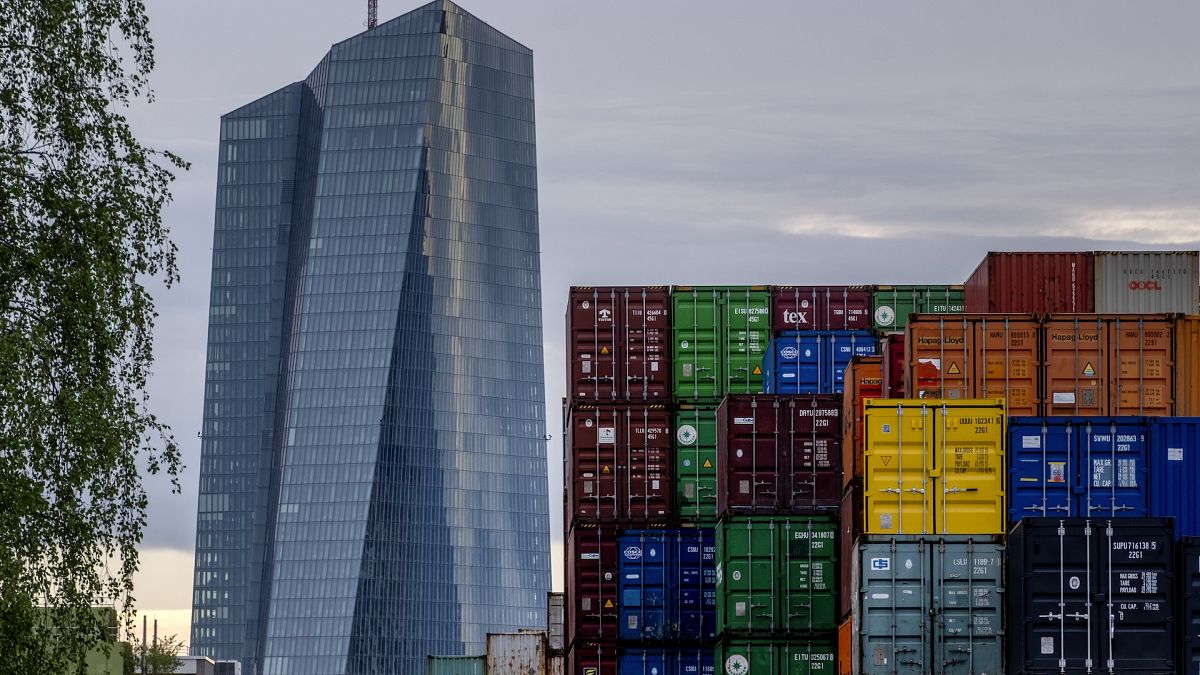While Lithuanian leaders say they support the “two-state solution” to the Israeli-Palestinian conflict, Vilnius has never seriously considered recognising the state of Palestine, unlike a growing number of EU countries. Public opinion on the issue is similarly murky. A representative poll of the Lithuanian population, conducted by Baltijos Tyrimai between June 21 and July 7, shows that opinions are split on the issue of whether Lithuania should recognise the State of Palestine.
A plurality of 39 percent have no position at all, a third think it should, while slightly fewer, 28 percent, think it should not. “I would be surprised if the results were any different,” admits Egdūnas Račius, a professor of Middle East Studies at Vytautas Magnus University in Kaunas. “That this contrasts with some or even a large part of Europeans was apparently programmed.

” The big number of Lithuanians without an opinion contrasts rather sharply with the sentiment in Western Europe, he adds, where positions are polarised. Fault of the education system? Nor are young Lithuanians more opinionated about the Middle East conflict, the survey suggests, which goes against the common assumption that the young generation is more pro-Palestinian or at least open to the world. According to Ernestas Jančenkas, a scholar at Vilnius University’s Institute of Asian and Transcultural Studies, the Israeli-Palestinian conflict is simply too distant for many Lithuanians, which is why they do not bother to have an opinion.
On the other hand, it could be an outcome of deficiencies in the education system. According to Račius, Lithuanian students in schools and universities spend very little time studying the history of other countries, especially in the Middle East and Africa. “Our school, which was created in independent Lithuania, [.
..] regards Lithuania as the centre of the world.
It is the only country we should seek to understand well, because there’s our great history, magnificent and uniquely valuable,” Račius summarises the dominant view, adding that the education system does not foster in young people any interest in learning about the world. As a result, Lithuania did not witness massive pro-Palestine rallies that were common in even Israel’s staunchest allies like the US and Germany. “It would certainly be a mistake to assume that a large part of Lithuania’s youth are educated in this Christian, humanistic spirit [.
..].
I’d even venture to say that older people seem to understand a little more about the world,” Račius believes. Holocaust guilt? However, it is not just education and general lack of interest in foreign policy that explains Lithuanians’ seeming indifference. Experts also point to the memory of the Holocaust and feelings of guilt that also play a role.
“There is a reluctance to be cross with Israel, which stems from Lithuania’s painful experience. Lithuania is notorious for the Holocaust and there is still a sense of historical guilt,” says Jančenkas. The Holocaust in Lithuania was particularly devastating.
According to different estimates, between 190,000 and 196,000 of Lithuania’s 208,000–210,000 Jews were murdered during World War Two, mostly under the Nazi occupation. Guilt may be preventing Vilnius from recognising the Palestinian state although in other regions Lithuania often declares its support to weaker countries and peoples who are struggling for independence, Račius notes. “Especially when Lithuania regained its independence, there was a solidarity, for example, that Chechens had the right to an independent state.
That solidarity has completely evaporated, and we have lost our inclination to sympathise with occupied communities or nations,” he says. Žilvinas Švedkauskas, a researcher at the University of Tübingen in Germany, also notes that the Israeli Embassy in Lithuania is very actively working to foster pro-Israeli sentiments. However, he believes, Lithuania will eventually be forced to broaden its horizons and take interest in a broader range of issues, including Palestine and Israel.
“The situation in which Palestinians and Israelis live has not been sustainable for decades,” he stresses. Lip service to the two-state solution Norway, Ireland and Spain have recently recognised the state of Palestine, while Lithuania’s neighbour Poland has done it even earlier, as have Sweden and Norway. Lithuanian President Gitanas Nausėda said in May that he supports the two-state solution, but argued against recognising the Palestinian state.
“[The two-state solution] is a solution that could ensure lasting peace, but today we see that both sides are not ready for this solution and this might not only fail to defuse the conflict, but could escalate it even further with all the ensuing consequences and loss of life,” Nausėda told BNS. “I think that, in this case, we have to act wisely, calmly, and not to aggravate the situation.” Foreign Minister Gabrielius Landsbergis has largely shared the president’s position, saying that a broader European position should be sought before individual countries like Lithuania recognise Palestine.
“The EU is divided into three groups: there is a group of countries that are completely opposed to any move, a group that wants it to be done more quickly, and there is the centre. Lithuania has always been in the centre, and our fundamental position, which is one of principle, is that Lithuania is in favour of a two-state solution, while of course also respecting the principles of international law," the minister was quoted by BNS. However, while Landsbergis wants a common European solution, Račius points out that the US plays a much more important role in the Israeli-Palestine conflict.
As one of Israel’s most important allies, Washington is likely to hold back Palestinian statehood, despite also rhetorically endorsing the two-state solution. “Lithuania does not have the luxury of making this symbolic move to recognise a Palestinian state without any consequences,” says Račius, referring to the country’s reliance on the US for its security. “I would say that the situation is such that Lithuania, even if it wanted to – not that it does – could not afford, if you will, such a licence,” he argues.
“Even if the European Union as a whole were to take the absolutely final decision that a Palestinian state should be recognised, Lithuania would not be moved.” Mounting pressure Either way, the EU is nowhere near such a decision. According to Kelly Petillo, an expert at the European Council on Foreign Relations (ECFR), Europe still believes that recognition of Palestinian statehood should be the end-goal of the negotiations, not the starting point.
“The more European countries recognise Palestine, the more pressure will be put on key states like Germany, especially if important countries like France join those that have already recognised Palestine,” she stresses. So far, the recognition of Palestine has not been widely discussed in Lithuania. According to experts interviewed by LRT.
lt, as long as it does not appear to the public as an important issue, the government will avoid touching this highly contentious question. Weekly newsletter every Friday.



















